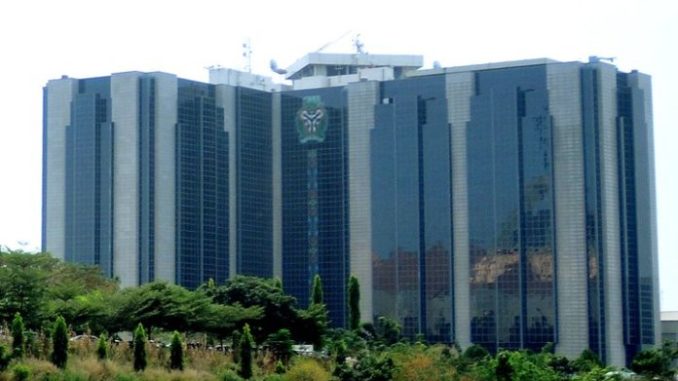
The accretion of Nigeria’s foreign exchange (forex) reserves, which started about two months ago, continued in the new year, when figures released yesterday by the Central Bank of Nigeria (CBN) showed that reserves had grown to $26.094 billion, signifying a slow but steady improvement in the country’s current account balance.
It was also indicative that the drop in militancy in the Niger Delta and rising oil exports, have led to an improvement in foreign exchanges earnings, which the CBN has been stashing away, notwithstanding the lingering forex scarcity in the economy. The present value of the reserves, derived mostly from the proceeds of crude oil sale, represents an appreciation by $2.137 billion or nine per cent, compared with $23.957 billion as of November 2, 2016, data gathered by THISDAY showed yesterday.
A CBN source, who spoke with THISDAY on the condition of anonymity, said the increase in the level of exports as well as the drop in imports in the country following renewed import substitution drive by the central bank and federal government could be responsible for the appreciation of the external reserves.
“There are several reasons for the uptick in reserves; exports may have been relatively stable in view of the relative calm in oil producing regions, particularly the Niger Delta. What it means is that for some time it hasn’t happened.
“Secondly, the rate at which the reserves had been draining, if you look very well, we’ve not been intervening very much apart from the (forex) forwards we have done. What it also means is that the forwards have helped to reduce the demand. “It is also a sign that some inflows are trickling in by way of people bringing in money and there’s also the seasonal angle to it – Christmas when Nigerians come home, they bring forex as well,” the source said.
THISDAY recently reported that the import substitution policies being driven by the central bank and the federal government appeared to be yielding results, as a recent country assessment report on Nigeria by the International Monetary Fund (IMF) indicated that a sharp decline in imports had contributed to a modest recovery in Nigeria’s external current account balance in the first half of 2016.
Although the report had shown that Nigeria’s exports declined by 14 per cent in the first half of 2016, it revealed that imports fell more than proportionately by 25 per cent in the first half of this year, compared to the same period last year. In a bid to promote domestic production, the federal government last week raised duties on luxury goods such as yachts and sport utility vehicles (SUVs) imported into the country. Also affected were some food items such as rice, salt and sugarcane that have local alternatives.
Under the new ECOWAS Common External Tariff (CET) regime which administers import and export tariffs within the West African subregion on the movement of goods, importers of yachts and other luxury automobiles such as SUVs, boats, sports cars, and other vessels used for pleasure are now to pay 70 per cent of the value of the vehicles as taxes (duties) to the Nigeria Customs Service (NCS).
Meanwhile, crude oil prices rose yesterday after Saudi Arabia started talks with customers about a reduction in crude sales to support a plan by the Organisation of the Petroleum Exporting Countries (OPEC). OPEC promised in November to cut output to help prop up prices.
Under the deal, Saudi Arabia agreed to cut output by 486,000 barrels per day (bpd), or 4.61 percent of its October output of 10.544 million bpd.
Investors have been suspicious that OPEC may not cut as much as promised, but several sources told Reuters yesterday the world’s biggest oil exporter intended to lower exports to comply with the OPEC reductions. Benchmark Brent crude oil was up 50 cents a barrel yesterday at $56.96. Also, U.S. light crude was up 45 cents a barrel at $53.71. Both contracts rose by around two percent on Wednesday.
However, analysts at Goldman Sachs had said even if OPEC reduced production as promised, there was “only a moderate oil spot price upside given the expected supply response to higher oil prices and new production”. The U.S. bank said it expected Brent prices to peak at $59 a barrel by mid-2017.
Source: Thisday
THE ROTTEN FISH: CAN OF WORMS OPENED OF APC & TINUBU'S GOVERNMENT OVER NIGERIA'S ECONOMIC DOWNTURN
WATCH THE CRITICAL ANALYSIS AND KNOW THE RESPONSIBLE PARTIES TO BLAME FOR NIGERIA'S ECONOMIC CHALLENGES, WHILE CITIZENS ENDURE SEVERE HARDSHIPS.Watch this episode of ISSUES IN THE NEWS on 9News Nigeria featuring Peter Obi's Special Adviser, Dr Katch Ononuju, 9News Nigeria Publisher, Obinna Ejianya and Tinubu Support Group Leader, McHezekiah Eherechi
The economic crisis and hardship in Nigeria are parts of the discussion.
Watch, leave your comments, and share to create more awareness on this issue.
#9NewsNigeria #Nigeria #issuesInTheNews #politics #tinubu THE ROTTEN FISH: CAN OF WORMS OPENED ...
DON'T FORGET TO SUBSCRIBE AND LEAVE YOUR COMMENTS FOR SUBSEQUENT UPDATES
#9newsnigeria #economia #economy #nigeria #government @9newsng
www.9newsng.com
